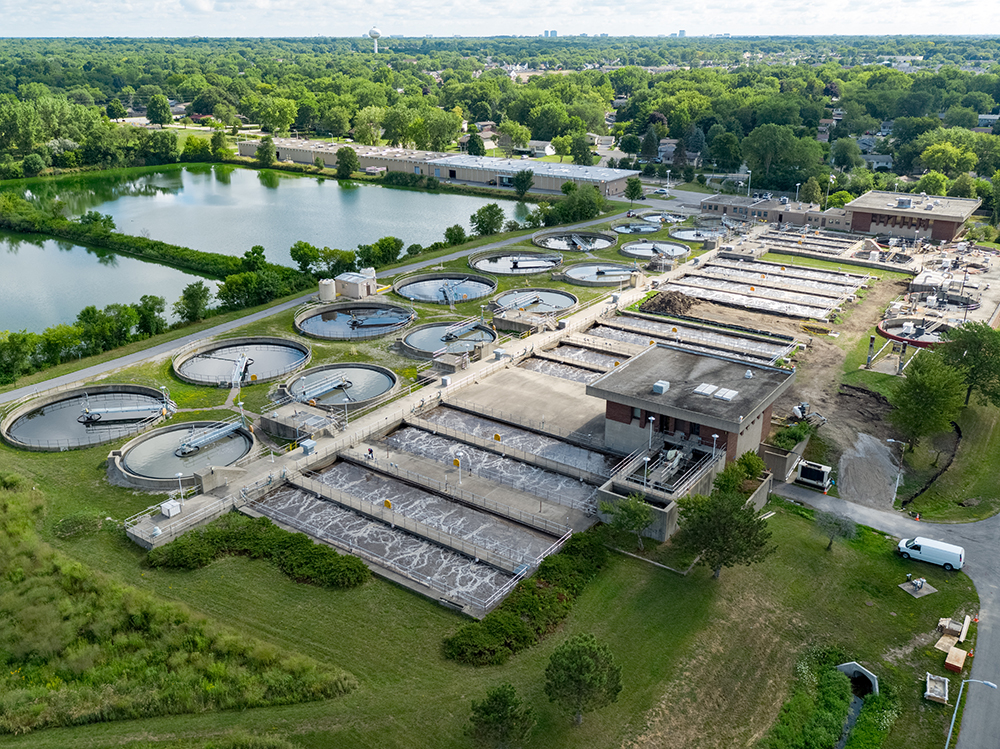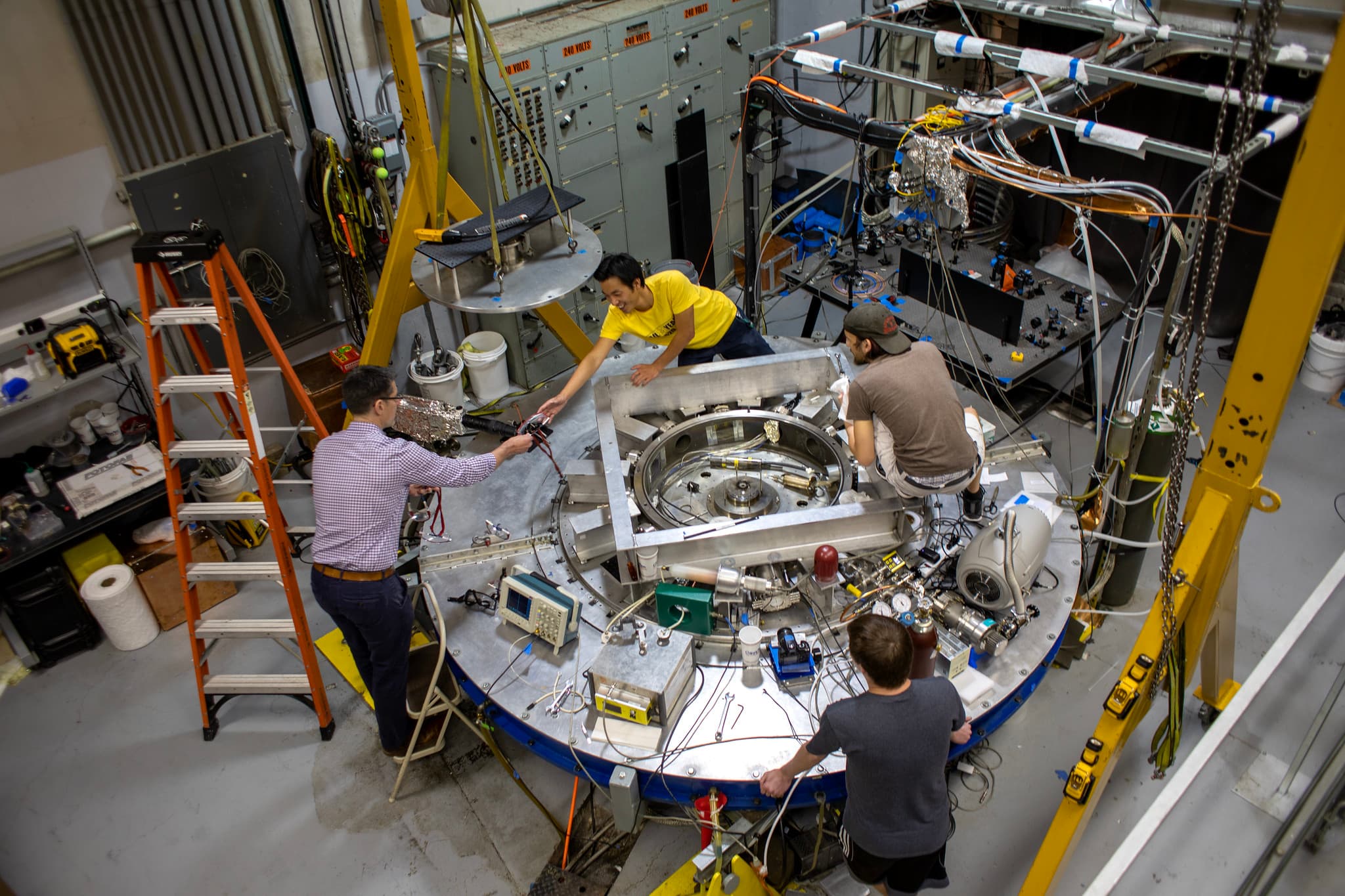Exploring More STEM Majors and Careers
Here are some more of the STEM majors that students can refer to, following part 1 of this series:
1. Electrical / Electronics Engineering

Image credits: Anchor University
Electrical Engineering focuses on the study and application of electricity, electronics, and electromagnetism. This major is integral to the development of electronic devices and systems. Electrical engineers work on a variety of projects, including power generation and distribution, telecommunications, and consumer electronics. This major is suitable for those who are interested in electrical systems and want to contribute to technological advancements.
Some Career Options:
- Electrical Engineer --> Design and test electrical systems and components
- Control Systems Engineer --> Develop and manage systems for machinery.
- Power Systems Engineer --> Work on the generation/ distribution of electrical power.
Career potential (retrieved from the U.S. BUREAU OF LABOR STATISTICS):
- 2023 Median pay : $109,010 per year/ $52.41 per hour
- Amount of jobs projected to grow 5% from 2022 to 2032
Skill Required:
- Strong understanding of mathematics and power systems/circuits.
- Analytical skills
- Innovative mind
2. Environmental Engineering

Image credits: University of Illinois, Chicago
Environmental Engineering focuses on using engineering principles to improve and protect the environment. This field addresses issues such as pollution control, waste management, and sustainable development. Environmental engineers work on projects that aim to reduce the impact of human activity on the environment, such as designing water treatment plants, developing renewable energy sources, and improving air quality. This major is ideal for those who are passionate about sustainability and environmental protection.
Some Career Options:
- Environmental Engineer --> Design systems to manage pollution and waste.
- Water Resources Engineer --> Develop systems for managing water resources.
- Sustainability Consultant --> Advise on sustainable practices and technologies.
Career potential (retrieved from the U.S. BUREAU OF LABOR STATISTICS):
- 2023 Median pay : $100,090 per year/ $48.12 per hour
- Amount of jobs projected to grow 6% from 2022 to 2032
Skills Required:
- Strong understanding of environmental regulations/chemistry/biology
- Creativity to come up with innovative ideas
- Problem-solving skills and field work
3. Civil Engineering

Image credits: Florida Atlantic University
Civil Engineering involves the design, construction, and maintenance of infrastructure such as buildings, roads, bridges, and water systems. This field is essential for developing and maintaining the physical infrastructure that supports society. Civil engineers work on a wide range of projects, from designing skyscrapers and highways to developing water treatment systems and earthquake-resistant structures. This major is ideal for those who are interested in building and construction.
Some Career Options:
- Civil Engineer --> Design and oversee construction projects.
- Structural Engineer --> Ensure structures can withstand stresses and pressures.
- Geotechnical Engineer --> Analyze soil and rock for construction projects.
Career potential (retrieved from the U.S. BUREAU OF LABOR STATISTICS):
- 2023 Median pay : $95,890 per year/ $46.10 per hour
- Amount of jobs projected to grow 5% from 2022 to 2032
Skills Required:
- Strong understanding of construction methods and materials
- Organizational skills
- Communication skills
- Analytical skills
4. Petroleum Engineering

Image credit: Interesting Engineering
Petroleum Engineering focuses on the extraction of oil and gas from beneath the Earth's surface. This field involves the design and development of methods for drilling and producing oil and gas. Petroleum engineers work on a variety of projects, including developing drilling plans, optimizing production, and ensuring the safety and efficiency of extraction processes. This major is ideal for those who are interested in the energy sector and enjoy problem-solving in challenging environments.
Some Career Options:
- Petroleum Engineer --> Design and develop extraction methods.
- Drilling Engineer --> Plan and manage drilling operations.
- Production Engineer --> Oversee the production process of oil and gas.
Career potential (retrieved from the U.S. BUREAU OF LABOR STATISTICS):
- 2023 Median pay : $135,690 per year/ $65.23 per hour
- Amount of jobs projected to grow 2% from 2022 to 2032
Skills Required:
- Strong understanding of geology and fluid mechanics and chemistry
- On-field work
- Analytical
- Communication skills
5. Nuclear Engineering

Image credits: University of Michigan
Nuclear Engineering focuses on the application of nuclear processes for energy production, medical applications, and other technologies. This field involves the design, development, and operation of nuclear reactors and other systems that use nuclear energy. Nuclear engineers work on a range of projects, from developing new reactor designs to improving radiation safety in medical applications. This major is ideal for those who are interested in clean energy and advanced technologies.
Some Career Options:
- Nuclear Engineer --> Design, develop or oversee nuclear reactors and power plants.
- Radiation Engineer --> Develop and test radiation systems.
- Nuclear Medicine Technologist --> Use radioactive materials for medical diagnosis and treatment.
Career potential (retrieved from the U.S. BUREAU OF LABOR STATISTICS):
- 2023 Median pay : $125,460 per year/ $60.32 per hour
- Amount of jobs projected to grow 1% from 2022 to 2032
Skills Required:
- Strong understanding of nuclear physics and chemistry
- Logical thinking
- Analytical skills
- Some fields need programming
Choosing a STEM major can set you on a path to a rewarding career filled with innovation and impact. Each discipline offers unique opportunities and challenges, so it’s important to consider your interests, strengths, and career aspirations when making your decision. Explore, learn, and embark on your journey to making a difference through science, technology, engineering, and mathematics. The next few editions of this series will focus on health related fields, so stay tuned!